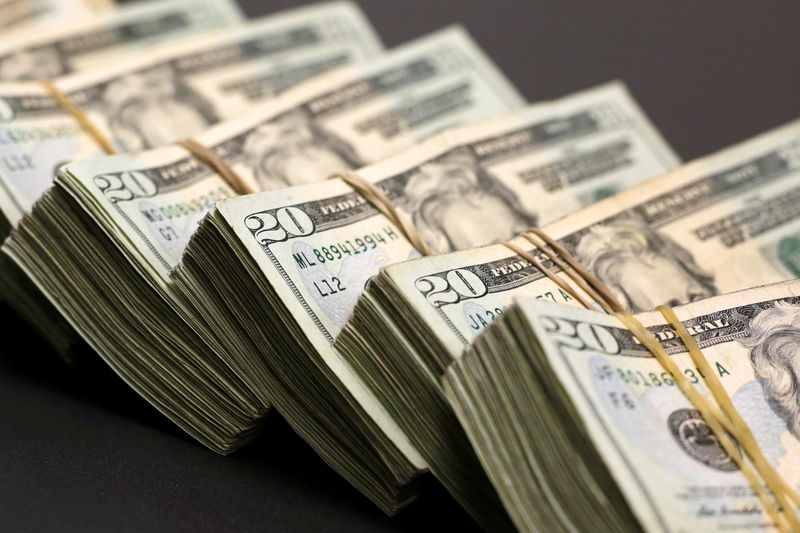By Peter Nurse
Investing.com - The dollar weakened in early European trade Wednesday to a one-month low, as increased optimism surrounding a new U.S. stimulus package helped boost the demand for riskier currencies, to the detriment of the greenback.
At 2:55 AM ET (0655 GMT), the Dollar Index, which tracks the greenback against a basket of six other currencies, was down 0.3% at 92.787, falling to its lowest level for a month. EUR/USD was up 0.3% at 1.1859, reaching a one-month high, while USD/JPY was down 0.3% at 105.23.
News that President Donald Trump was willing to accept a large aid bill, as a string of negative opinion polls puts pressure on him to get a deal done before the Nov. 3 election, has raised hopes for a stimulus breakthrough.
Negotiations between House of Representatives Speaker Nancy Pelosi and Treasury Secretary Steven Mnuchin will continue on Wednesday.
That said, the dollar losses haven’t been extreme as there remains strong opposition from within Trump’s own Republican Party about a package of any real size being agreed.
“All in all, a fresh stimulus bill before the elections remains far from certain and we suspect there is not much of it currently being priced in by the markets, which should keep the downside for risk assets relatively limited if prospects of a bipartisan-deal eventually collapse,” said analysts at ING, in a research note.
Aside from the political maneuvering in Washington, traders will look to the release of the Federal Reserve's October Beige Book for clues of the extent of the U.S. economic recovery. It will provide a snapshot from businesses and communities about how the resurgence of Covid is being felt across the country.
Elsewhere, GBP/USD traded 0.4% higher at 1.2997, after annual inflation in the U.K. accelerated in September. Consumer prices rose 0.5% on year in September compared with a 0.2% rise in August, driven by higher transport costs, as well as higher prices at restaurants.
Separate figures showed the government borrowed 36.1 billion pounds ($46.75 billion) in September, the third-highest total for any month since records began in 1993, to help finance various coronavirus-relief packages for the economy.
"Whilst it's clear that the coronavirus pandemic has had a significant impact on our public finances, things would have been far worse had we not acted in the way we did to protect millions of livelihoods," British finance minister Rishi Sunak said.
Additionally, USD/CNY traded 0.5% lower at 6.6411, falling to its weakest level since July 2018, a consequence of the Chinese economy’s relatively strong rebound from the pandemic.
"China is the strongest economic story in town, relative to Europe and the U.S.," said Bank of Singapore currency analyst Moh Siong Sim,in a Reuters report. A Joe Biden presidency, he added, could also provide support by calming Sino-U.S. relations.
On Monday, China reported that its gross domestic product grew 4.9% in July-September from a year earlier.
